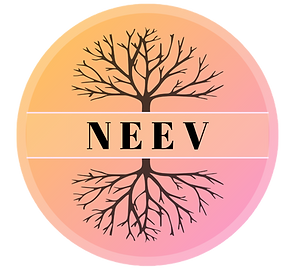Blindness and Mental Health
- Project Neev

- Jan 19, 2021
- 3 min read
Updated: Jan 29, 2021
Article by Manas Gandhi and Devika S
Well, have you ever imagined entering a room full of people and not being able to see any of them? You can sense everyone, feel everyone but aren't able to see who they are or what they are doing. Assuming the situation itself makes me anxious! So imagine what it would be like to live the life of the blind; people who are suffering from blindness or are visually impaired experience these kind of anxiety and panic attacks on a daily basis.
Individuals who lost their eyesight in the latter half of their life might easily slip into depression because now they need assistance for things that they could do without any hitch before. Situations like these can lead to negative thoughts patterns and cognitive distortions.
It is estimated that around 970 million people worldwide suffer from mental health problems and, around 285 million people worldwide are suffering from visual impairment. So it is pretty evident that there is a possibility of having a correlation between both variables. The term visual impairment is used, for an individual with the best—corrected vision of 20/40 or worse.
Aging comes with a lot of health issues; visual impairment could be one among the many health related problems one can acquire as they grow old.
It has been observed that among older adults, vision loss is one of the leading cause of disability which is also associated with a reduced quality of life. As older adults might have other health issues along with loss of vision, it might increase the probability of depressive and anxiety symptoms. These symptoms in turn can cause further decline in the quality of life and make their health conditions vulnerable.
Mental health issues like:-
● anxiety
● discomfort in social settings
● clumsiness
● low self-esteem
● panic attacks
● loneliness
● depression
have a high prevalence in visually impaired individuals. Royal National Institute of Blind People in the year 2019 addressed that only 17% of those who are visually impaired are offered emotional support in connection with their condition. Each day comes with a challenge for the blind - navigating around places, finding reading material, arranging clothes, and being independent in general are few of the challenges they face daily.
Considering the above, it is highly important to address the fact that we as individuals, who are gifted with the luxury of sight, ignore a lot of aspects while dealing with visually impaired individuals. We need to treat them normally. A lot of times we either treat them with annoying amount of empathy which ends up making them feel dependent on us or else we end up being so inconsiderate that they find themselves helpless.
What can be done in situations like these? That’s where effective communication comes into play. Our efforts to help the visually impaired can both help and hinder them, so ask before you act. In one’s own house the individual is well aware of the directions and can be completely independent, the real challenge begins when they step out. As travelling by foot or public transport are the most common modes of transportation, navigation is something that they cannot do alone. Hence if someone approaches you asking directions, try to be very specific and clear while talking to them and remember to confirm whether they are clear with the instructions or not; and never leave them without announcing your departure. Make sure that if someone visually impaired is around you, they are safe. If you see anyone in a unsafe situation, on the street or in the house, be sure to inform them and guide them.
Finally, while helping them out, make sure you are not making them uncomfortable and be sure to ask them for consent before touching them, incase its relevant. We very rarely meet visually impaired individuals on a daily basis, and most of them always have a care taker for giving them attention but there are a lot of visually impaired people out there, who live in places like old age homes and home for the blind who struggle to be independent, they also require emotional support for a better mental health. The only way to help them out is by sparing some time for them.
“When one door of happiness closes, another opens; But often we look so long at the closed door that we do not see the one which has been opened for us”
~Helen Keller
Every day comes as a challenge for the blind, being blind is never a choice so if ever you come across a visually impaired person treat them with kindness!
_edited.png)







Comments